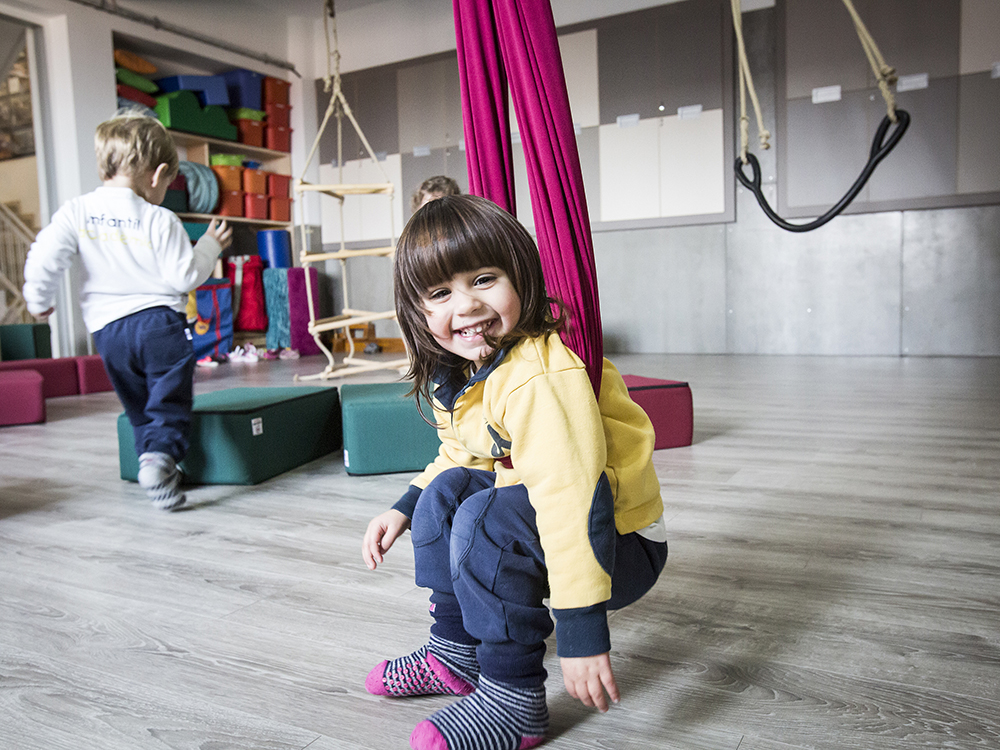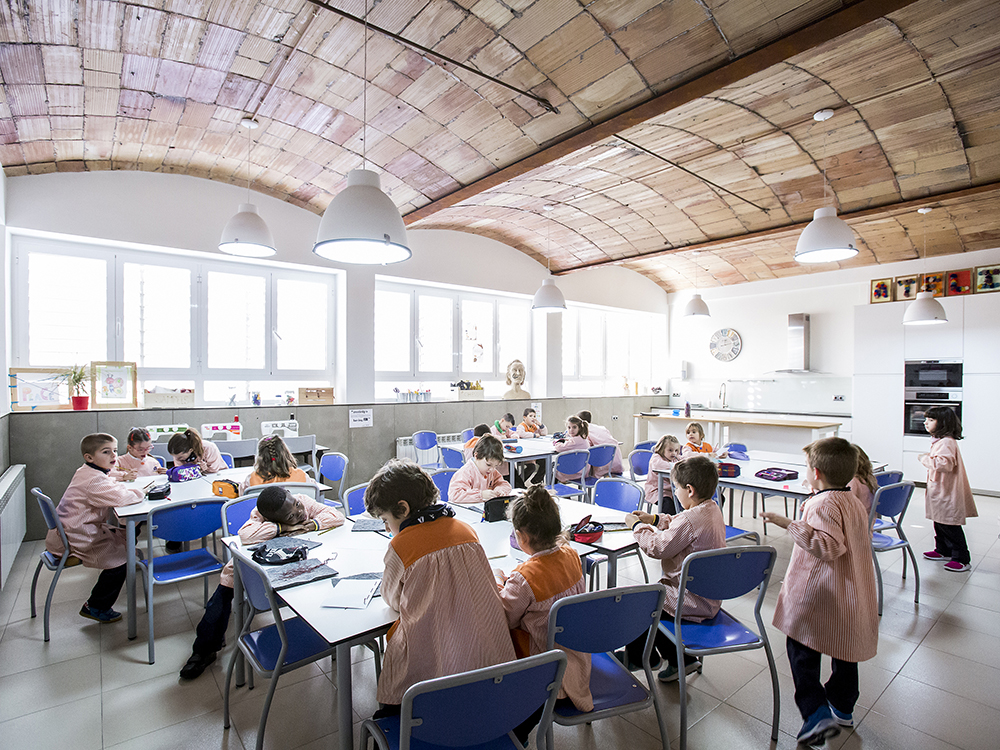
Academia Igualada is a private, secular educational
institution assisted by the Government of Catalonia
We are
It was in 1939 when the city of Igualada placed its founder, Antoni Jorba i Soler, in charge of leading a centre dedicated to education.
For more than seventy five years, Academia Igualada has grown and developed along with the pace of society, but has always remained loyal to its ethos and to the school’s project: a living school, close to families, welcoming, whose aim is the academic studies and education of students in the values of responsibility, the determination to succeed, coexistence, tolerance and respect.


A
At Academia Igualada we take into account that each child is unique and, therefore, we offer them a range of opportunities and strategies to grow as a person and to enjoy the pleasure of learning.
We want our children to be emotionally confident people, who think and act independently, that have the right tools to be capable in the future and to communicate, research, create, reflect, think and that make a commitment to society based on the values they have developed.
What parents say about us
The Empremta project revolves around 5 axes embraced by the culture of thinking

Emotion

Social

Competency

Global

Family
All these points will impact on the student and make them discover their own potential, helping them to discover the values that need to guide our behaviour and that will allow them to be an active, responsible and fully integrated member of society.
Decisions like:
- Emotional Education
- Education in Values
- Projects between stages
- Community Service Projects
- Entrepreneurship Projects
- Small Work Groups
- Early Stimulation
- Multiple Intelligences
- Thinking Culture
- Cooperative Work
- Working in a Team
.
- European Programmes: Erasmus Plus
- Language Assistants
- Official Cambridge Qualifications
- Exchanges
- “Do it Yourself”
- “Orality in school”
- Games and Technology: work tools
- Programming with Scratch
- Robotics with Lego Mindstorms
- “Chess in school”
- “Atelier”
- “SonaEscola" Project
The culture of thinking
The culture of thinking is a type of educational approach that allows our students to reflect, ask questions, understand the why of things and find connections between what they learn and the world around them.
Where does it come from?
The culture of thinking emerged primarily from the work of Project Zero, an educational research group at Harvard University founded in the 1960s. This project was created with the aim of understanding how we learn and how teaching processes can be improved to encourage critical and creative thinking.
One of the main drivers of this methodology is Ron Ritchhart. He and his team developed tools such as thinking routines to help teachers structure activities that promote reflection and understanding in students.
Why do we do it?
- Foster curiosity and interest in knowledge: Students learn to ask questions and explore answers on their own.
- Help solve problems creatively: Develop the ability to identify alternatives and evaluate solutions.
- Improve communication and collaboration: By sharing ideas and reasoning, children learn to listen to and respect the perspectives of others.
- Prepare for life: This type of education forms critical, responsible and autonomous citizens.
How do we work it in the classroom?
- Thinking Routines: Simple, structured activities (such as "What do I know? What do I want to know? What have I learned?") that encourage reflection.
- Thinking Keys: Tools that allow us to open up our thinking.
- Habits of Mind: A way of thinking or acting that we use often and that help us solve problems or deal with situations.
- Thinking-Inspiring Environments: Spaces where students' ideas are visible, valued, and connected.
- Teacher Modeling: Teachers not only transmit knowledge, but also show how to think, reflect, and ask questions.








